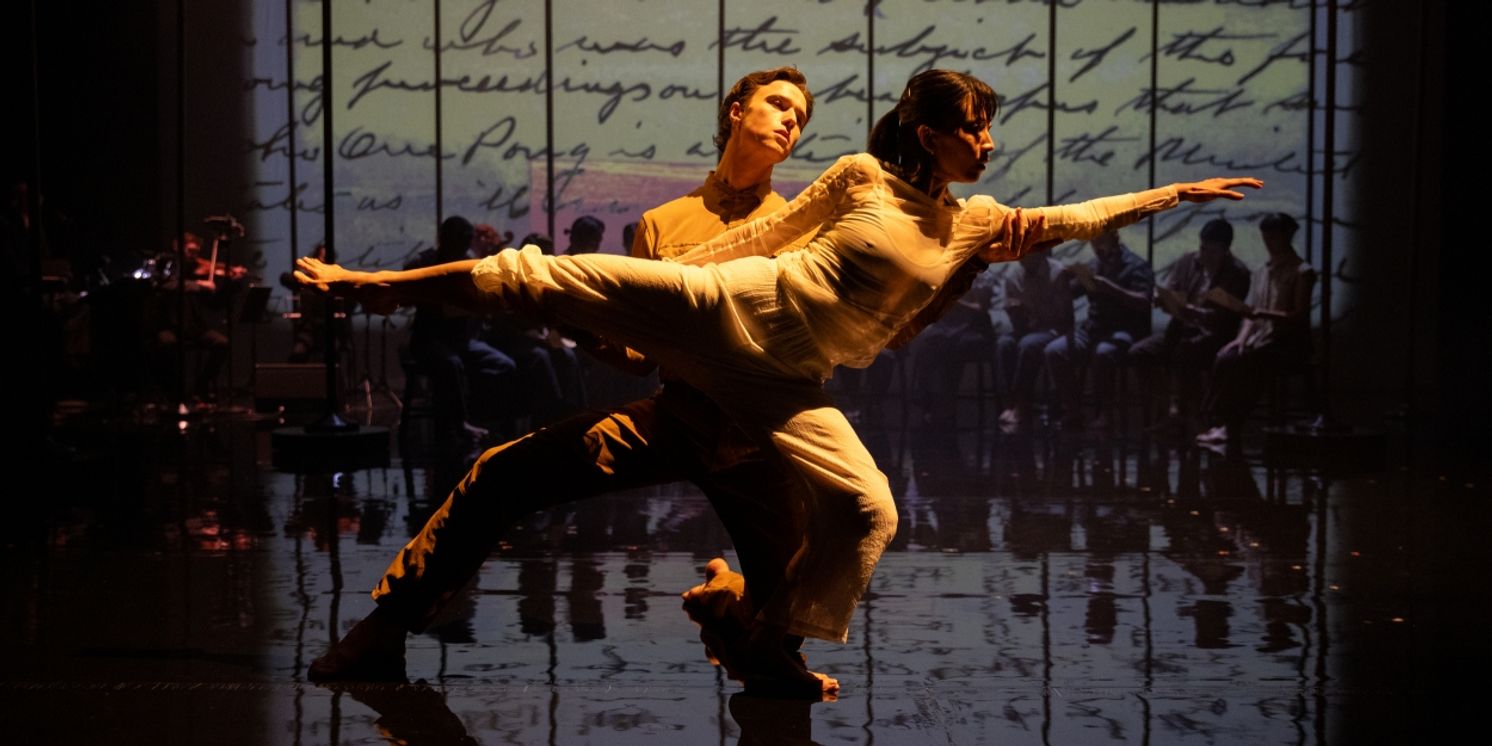Review: No Heaven, Only Hell, in Huang Ruo's ANGEL ISLAND from Prototype at BAM
Horror Stories of Chinese Immigrants Detained Under Chinese Exclusion Act of 1882 and Other Onerous Laws in Musical Theatre Piece

Huang Ruo’s artistically bold, viscerally devastating ANGEL ISLAND had its local debut the other night at BAM’s Harvey Theatre on Brooklyn’s Fulton Street, produced by Beth Morrison Projects (BMP) and BAM. Its New York premiere is part of the annual Prototype Festival of opera theatre-music theatre--co-founded by BMP and HERE--which has been bringing challenging contemporary works of different stripes to town since 2013.
Angel Island, in San Francisco Bay, has been compared by some to a West Coast equivalent of New York’s Ellis Island, but they are clearly misguided. Although it had served a variety of purposes in previous times, from 1910 to 1940 it served as an immigration processing station. This included detaining about a million Chinese: largely those who had been denied entry into the US because of the Chinese Exclusion Act of 1882.
Although other matters are important to the libretto (presented with English and Mandarin supertitles) The Exclusion Act is key to the storytelling. It was the first, and remains the only, law implemented to prevent all members of a specific or national group from immigrating to the US (NB: “Chinese” included Japanese and other Asian-born would-be immigrants). It remained in force in a barely milder form until 1943 (when 105 Chinese immigrants were allowed to enter the US annually) and the National Origins Formula wasn't abolished until 1965!
It is yet another reminder of the checkered past of this country as “the land of the free and the home of the brave”--one that continues to this day as segments of the political spectrum seek to “make America great again.” This included those looking for scapegoats in the time of COVID, building border walls and still having to be reminded that Black Lives Matter--along with the historic mistreatment of Native Americans, immigrants escaping the Holocaust, the massacre of Black Americans in Oklahoma a century ago, and on and on.
In a simple but effective staging by director Matthew Ozawa and choreographer Rena Butler, with an evocative film backdrop by Bill Morrison, scenic design by Riw Rakkulchon with lighting by Yuki Nakase Link and costumes by Ashley Soliman, composer Ruo’s multi-faceted score, for voices, string quartet and dancers was a moving lifesource, shifting from dissonance to melodic, traditional to modern, from hymn-like to brutal.
The score (conducted by Ruo himself, with the fine players of the Del Sol Quartet and members of the Choir of Trinity Church Wall Street) is written in two tracks designed to reveal different perspectives: one written for narration and string quartet and inspired by historical events, the other for vocal ensemble and string quartet, based on four poems carved into the island’s detention center between 1910-1940 that describe the barbarous life and death of the island, where detainees were held as long as several years.
The combination of media and styles--which included collages of newspaper accounts of riots against the Chinese population of Los Angeles in 1871 and how Chinese survivors of the Titanic catastrophe in 1912 received no medical attention, as well as a reading from the texts of the Page Act (targeting Chinese women) and the Exclusion Act--helped bring the past to life in ANGEL ISLAND’s 90 minutes.
There were no arias per se: The music wasn’t meant to highlight individual singers but rather was choral in form--seeming to forge a concentration on the group experience rather than the pain of the individual (although the two central characters, wonderfully performed by Jie-Hung Connie Shiau, in particular, and Benjamin Freemantle, did have solo dance work).
In his program notes, Ruo states that no one “can truly reenact this painful history authentically through acting.” Perhaps, as an immigrant himself (though his own journey is more recent, the 1990’s), who still feels the pain of leaving his home and family to come to a foreign land, he is too close to the material to supply the kind of libretto that would make this story alive to a much broader audience, since I believe it is little known to a majority of people in this country.
From my own perspective, I wish he had allowed stories to be dramatized rather than narrated (news clips and reading from the Act, etc). While compelling as he chose to use them, I believe they would have been even more effective if allowed to bring contemporary audiences closer to those historical souls who, as Hamlet said, suffered "the slings and arrows of outrageous fortune."
Caption: Jie-Hung Connie Shiau and Benjamin Freemantle
Photo by Maria Baranova
Reader Reviews
Videos

